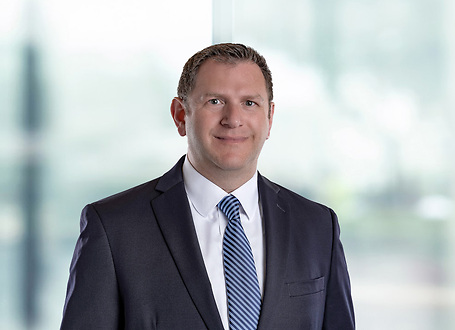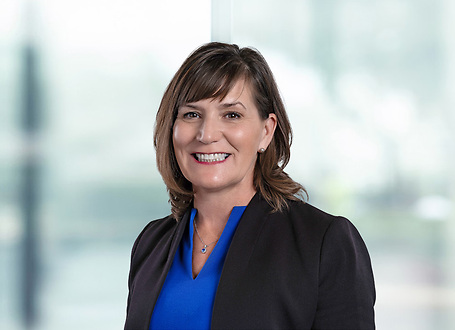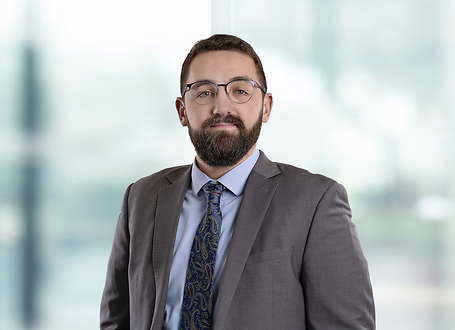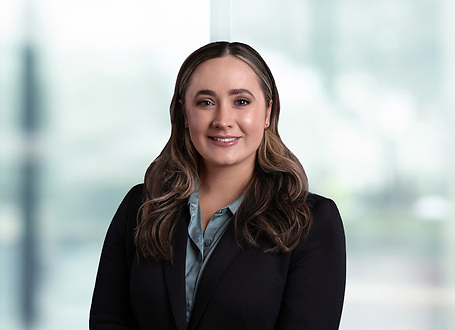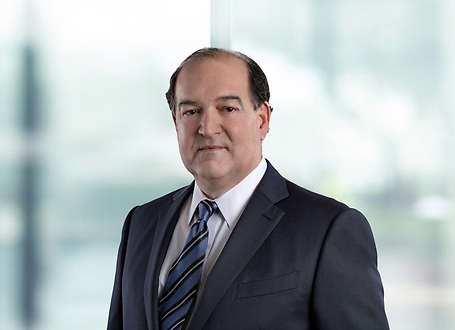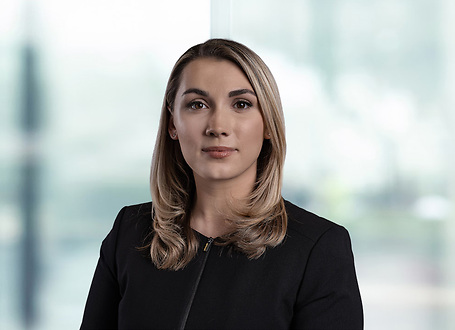In a business climate driven by constant innovation and commercialized information, protecting intellectual property is critical to success. Our intellectual property litigation team works with clients ranging from emerging visionaries to market-leading corporations to support and defend the ideas, designs, and processes that are the lifeblood of their business.
How We Help Clients
- Prosecute and defend claims of infringement or misappropriation of patents, trademarks, copyrights, trade secrets, and ideas
- Provide informed counsel and staunch advocacy for our clients through the litigation process from strategy development and pre-litigation investigations all the way through litigation and appeals
- Create and utilize multidisciplinary teams to ensure matters are handled effectively and efficiently for clients
- Work closely with attorneys at our firm who have advanced degrees or industry experience in engineering, chemistry, biological sciences, and other subject areas to bring a thorough understanding of our clients’ business, technology, and objectives.
Who We Are
Hodgson Russ has been awarded a prestigious "Best Law Firms" Metropolitan Tier 1 ranking by Best Lawyers/U.S. News & World Report in the Litigation - Intellectual Property category.
We represent clients in numerous industries, including:
- Biotechnology
- Manufacturing
- Chemical engineering
- Software
- Children’s products
- Entertainment and media
- Financial services
- Food & Beverage
- Medical products and devices
- Nanotechnology
- Pharmaceuticals
- Solar technology
- Ballistic technology and fabrics
- And more
Our clients benefit from our extensive experience representing both plaintiffs and defendants in matters involving all forms of intellectual property, including:
- Representing clients in patent infringement matters involving a diverse range of products and services (including medical devices, pharmaceuticals, sports equipment, genetic testing, linguistic search engine technology, and nanoparticle coatings, to name just a few)
- Representing clients in proceedings before the International Trade Commission, the agency which adjudicates disputes over imported goods that infringe U.S. patents, trademarks and copyrights
- Bringing and defending challenges to domain names (ICANN and federal court proceedings)
- Bringing and defending trademark opposition and cancellation proceedings before the Trademark Trial and Appeal Board (TTAB)
- Conducting jury and bench trials of patent, trademark, and misappropriation claims in state and federal courts
- Obtaining preliminary injunctions
- Working with patent prosecutors on re-examination proceedings and inter partes reviews before the Patent Trial and Appeal Board at the USPTO
Whether counseling on protection strategies in the conference room or defending our clients’ interests in the courtroom, the Hodgson Russ intellectual property litigation team provides sophisticated and cost-effective legal services focused on helping clients achieve their business objectives. Without the high price tag that generally comes with firms headquartered in larger cities, our attorneys have the breadth and depth of knowledge and experience necessary to help our clients protect their intellectual property rights and strengthen their competitiveness.
Practice Leader
- Partner
Experience
Asserted claims in District of Massachusetts against a competitor for theft of trade secrets on behalf of a major aerospace component manufacturer
Defended large clothing company against claims of trademark infringement and trade dress infringement and simultaneously sought to enforce an existing trademark coexistence agreement
Defended snack company against trademark infringement action in Southern District of New York
People
- Alfonzo I. CutaiaPartner
- John T. M. DiMaio Ph.D.Senior Associate
- Rob FluskeyPartner
- Neil B. FriedmanPartner
- Jodyann GalvinPartner
- Joshua B. LevittSenior Associate
- John D. Lopinski Ph.D.Partner
- Nathaniel W. LucekPartner
- Fallon MartinAssociate
- Christopher MassaroniPartner
- Ryan A. McGoniglePartner
- Julia E. MikolajczakAssociate
- Scott C. PatonPartner
- Emily J. PfalzerSenior Associate
- Charles S. RauchPartner
- R. Kent RobertsPartner
- Alexandria N. RowenSenior Associate
- Gary M. SchoberPartner
- George L. SnyderPartner
- Melissa N. SubjeckPartner
- James Zawodzinski Jr.Senior Associate
News & Insights
Podcasts
Highlights
- AlertU.S. Supreme Court Overturns $43 Million Award Ruling That Successful Plaintiff Cannot Collect From An Affiliate Unless They Are Named in the Action
- Press ReleaseHodgson Russ LLP Receives Multiple Top Tier National, Metropolitan Rankings in 2025 Best Law Firms Listings
 AlertIdentifying Trade Secrets With Precision is Essential to Successful Claims
AlertIdentifying Trade Secrets With Precision is Essential to Successful Claims





